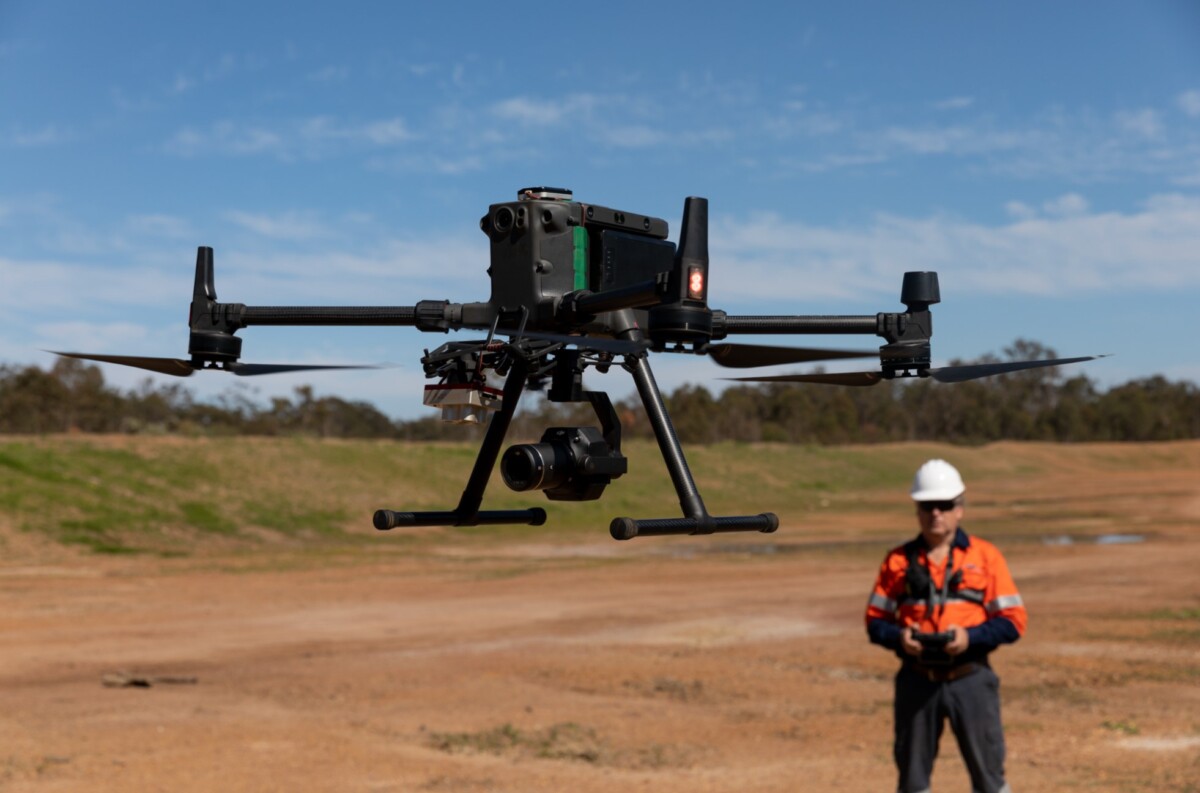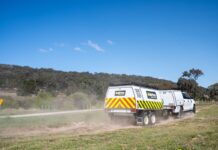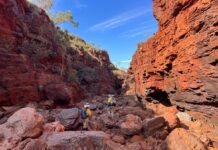Ecocene’s Ecological Intelligence Platform Uses AI to Transform Mine Site Rehabilitation
Ecocene’s Ecoda Platform Combines AI-Powered Analytics, Remote Sensing and Expert Validation to Deliver Stronger and More Sustainable Environmental Outcomes
Ecocene, a leading Australian nature tech company, is transforming how mining and energy companies handle environmental data. By harnessing artificial intelligence, Ecocene empowers industry leaders to gather, interpret and apply complex ecological information – driving stronger environmental outcomes and improved project performance.
Ecocene partners with some of the world’s largest mining and energy companies, including BHP, Rio Tinto, Roy Hill, Santos, Woodside and Chevron, who all recognise the importance of accurate, actionable environmental data.
“We have continuously improved our Ecoda technology platform over the past decade to collate and interpret data, and we are delighted to share our increasingly sophisticated capabilities,” says Ecocene CEO Julian Kruger.
Ecocene has three divisions: Ecocene Expertise (ecological and geospatial services), Ecocene Funding (digital markets for nature) and Ecocene Intelligence, which centres around Ecoda (its data intelligence platform).
Our technology measures progress in a world that increasingly recognises the value of biodiversity to both the planet and the economy,” says Kruger. “It streamlines monitoring, enhances ecological decision-making, and already supports tier-one miners across Australia and internationally. The goal is to provide stronger evidence of nature’s importance through accurate measurement, with smarter tech playing a vital role in protecting biodiversity, restoring landscapes and safeguarding ecosystems.
Ecoda
The Ecoda platform transforms complex information into actionable intelligence and ensures regulatory compliance via streamlined data collection, management and reporting.
Remote Sensing Metrics
Ecoda translates remote sensing metrics to provide insights into:
- landform stability and geometry
- water quality
- vegetation cover, health and structure
- habitat quality and suitability
- a range of biodiversity indicators, including the occurrence and abundance of flora and fauna species.
From Astron and Ecoda to Ecocene
In 2025, Astron Environmental Services and Ecoda officially became Ecocene. Founded over 40 years ago in Karratha, Astron earned a reputation for high-quality biodiversity and geospatial services. Ecoda, its technology and analytics division, specialised in transforming ecological data into automated insights and reporting. Together, they now operate as a single, unified business under the Ecocene name.
80 Permanent Specialists Across Ecology, Geospatial, Data and Software
Headquartered in Western Australia, Ecocene employs more than 80 staff members, including ecologists, geospatial analysts, data scientists, and software engineers. The company uses proprietary artificial intelligence, machine learning and deep learning models, some over a decade in the making, to process large-scale environmental datasets across varied landscapes.
Ecocene was the first environmental consultancy in Australia to receive a drone licence, enabling fast, comprehensive data capture from remote mining areas. As drone use expanded, the team began building AI tools to interpret the growing data stream.

AI Grounded in Fieldwork and Validation
Ecocene’s AI models are trained to detect species, vegetation types, landforms and biodiversity trends across complex environments. Ongoing fieldwork and ground truthing are used to verify results and continually refine model performance.
“Our models enable monitoring of a broad spectrum of critical environmental assets and processes” says Kruger. “This empowers clients to make informed decisions and solve environmental challenges more efficiently – often at lower cost.”
Bringing Together Remote Sensing, LiDAR and On-the-Ground Knowledge
Environmental monitoring in mining typically involves multiple data sources: drone imagery, satellite data, aerial LiDAR and field surveys. Ecocene works closely with clients to ensure these inputs are accurate, consistent and useful.
“Our role is to help clients make sense of the data,” says Kruger. “We track metrics like landform slope, erosion rates, species cover and vegetation recovery. These insights help clients make better decisions about rehabilitation planning and performance reporting.”
A Shift in How Mining Approaches Rehabilitation
Kruger observes a shift in how mining leaders approach environmental responsibilities – especially when it comes to mine closure and rehabilitation.
“Emerging leaders want to be recognised as good stewards of the land,” he says. “We’re seeing more focus on striking a careful balance between extraction and biodiversity outcomes. In future, I expect to see companies appointing Chief Nature Officers and heads of biodiversity working alongside CFOs and legal teams to manage nature-related risks.”
“Greater volumes of high-quality data are helping us make more informed decisions. With remote sensing and AI, we can better measure and communicate the value of nature. For much of the past century, nature has been treated as an unlimited, cost-free asset – essentially invisible on balance sheets. That perception is shifting, driven by improved data and growing recognition that healthy ecosystems are fundamental to economic resilience.”
Drawing on decades of experience in ecological monitoring and mine rehabilitation – from Pilbara spinifex grasslands and Victorian wetlands to mangroves in South America and jungles in West Africa – Ecocene applies its deep ecological knowledge to support mine rehabilitation projects across Australia and around the world.
“The data and technology are already here – we can rebuild the earth’s ecosystems,” he says. “Remote sensing, AI and continuous learning models are opening new possibilities for biodiversity management and mine site rehabilitation. Australia is setting the benchmark for responsible resource development, and we see Ecocene – and our Ecoda technology – playing a key role in advancing that global leadership.”


























